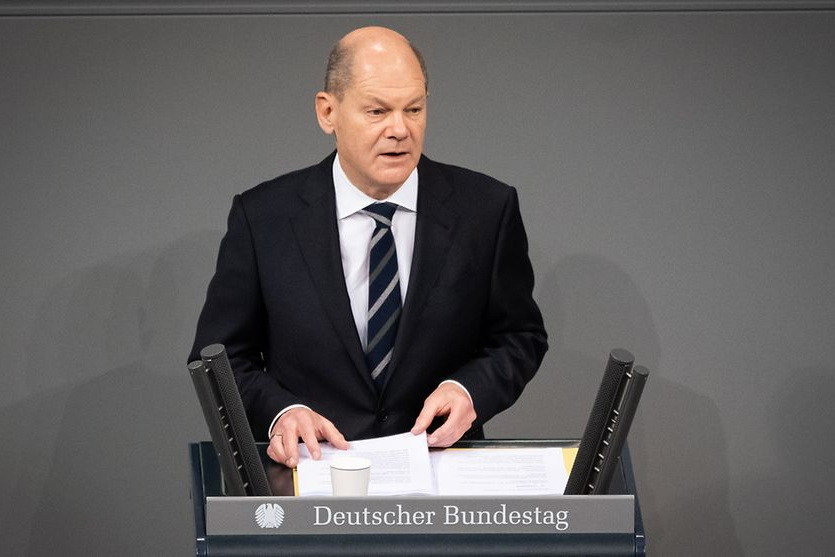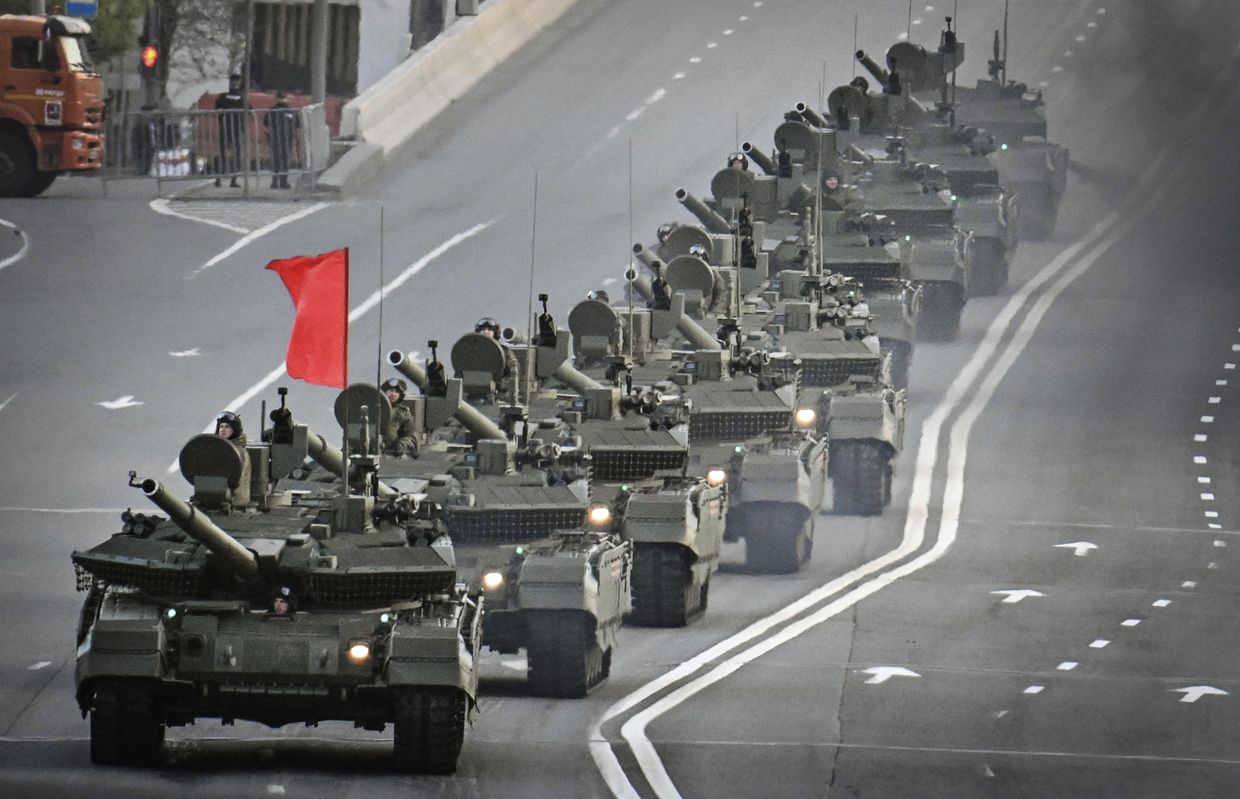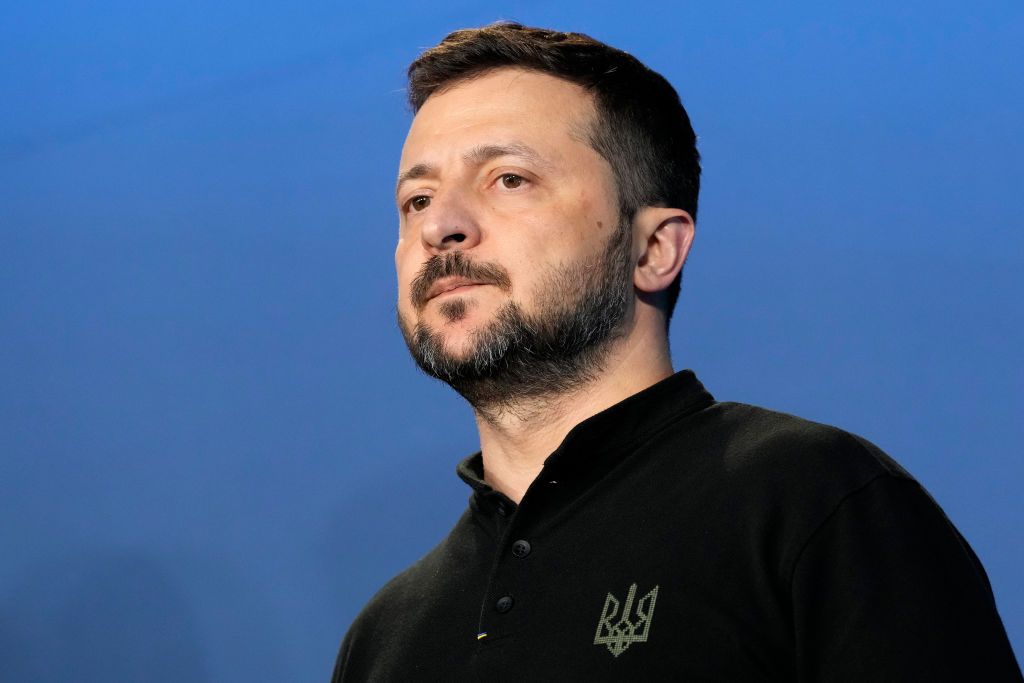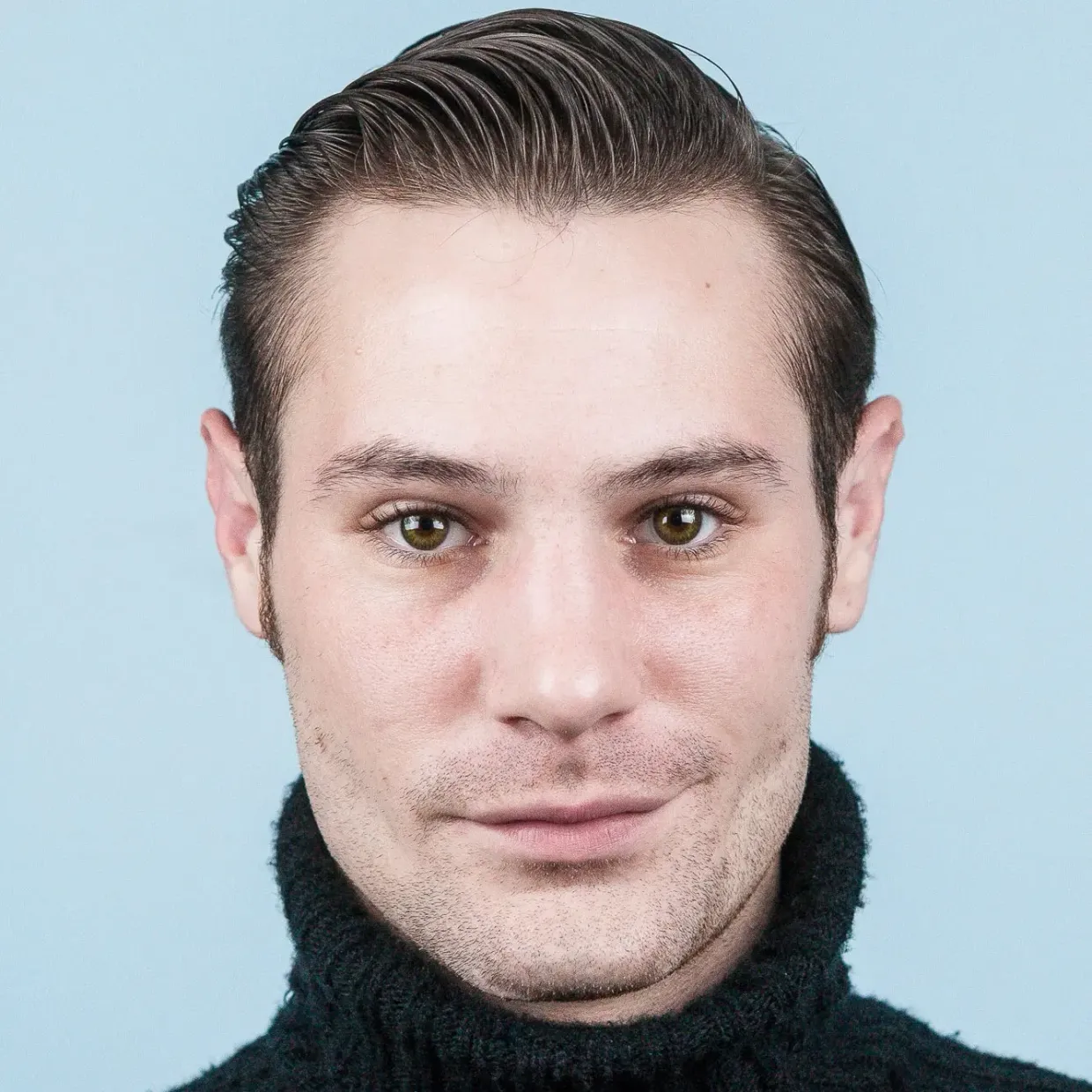"There is no point in prolonging the killings. And I will wait for Putin on Thursday in Turkey," President Volodymyr Zelensky said.
"We cannot allow NATO's military infrastructure to get that close to our borders," Kremlin spokesperson Dmitry Peskov said.
This week, the world watched in anticipation for Russia’s Victory Day parade after President Volodymyr Zelensky commented that he could not guarantee the safety of those attending. Meanwhile, the European Union moves one step forward to banning Russian gas from the European continent. It is also revealed this week that U.S. Secretary of Defense Pete Hegseth has fallen out of step with the White House.
"(Russian) President (Vladimir) Putin... doesn't want to have a ceasefire agreement with Ukraine, but rather wants to meet on Thursday, in Turkey, to negotiate a possible end to the bloodbath. Ukraine should agree to this, immediately," U.S. President Donald Trump said.
U.S. Secretary of State Marco Rubio will travel to to Antalya, Turkey, for a NATO foreign ministers’ meeting from May 14–16, where he is expected to address the war in Ukraine and push for stronger Allied defense commitments.
Preliminary findings suggest that one of the men killed the other before taking his own life.
Western leaders dismissed the Kremlin's proposal for talks in Istanbul on May 15 as insufficient.
The Kremlin said the leaders held a detailed discussion about the Russian initiative and Erdogan expressed full support, reiterating Turkey’s readiness to provide a venue and assist in organizing the negotiations.
Erdogan told Macron that international cooperation is critical for initiating peace negotiations and the "sensitive implementation" of Ukraine’s recovery and reconstruction processes, the Turkish Presidency reported.
The pope said he was praying to God to grant the world the "miracle of peace."
Ushakov’s comments follow Russian President Vladimir Putin's May 11 invitation for direct talks with Ukraine in Istanbul starting May 15.
The assault began around 2 a.m. on May 11, with Russian forces deploying 108 Shahed-type attack drones and decoy UAVs from multiple directions, Ukraine’s Air Force said.
Zelensky called a ceasefire the essential first step toward ending the war.
The number includes 1,310 casualties that Russian forces suffered over the past day.
Scholz to meet with Putin in January to address military buildup, Nord Stream 2

German Chancellor Olaf Scholz expects to meet with Russian President Vladimir Putin in January to discuss Russia’s military buildup on Ukraine’s border and the Nord Stream 2 pipeline, German newspaper Bild reported on Jan. 3, citing an anonymous source.
Scholz said he wants a “fresh start” with Putin and wants to make Russia a “top priority,” the source said. This goes against the wishes of the Greens, a party within the ruling German coalition government that's more critical of the Kremlin.
German Foreign Minister Annalena Baerbock will travel to Washington on Jan. 6, where she will discuss the conflict with her U.S. counterpart, Antony Blinken, and other politicians, according to the ministry. Baerbock's agenda on her first official visit to the U.S. will include future dialogue with Russia, climate, foreign policy and strengthening democracies.
Meanwhile, political advisers to the leaders of Normandy Format peace talks participants Germany, France, Ukraine and Russia, will hold separate meetings this week, Germany’s government spokesman Steffen Gebeshtrait announced on Jan. 3.
The leaders of the four countries have not met together since 2019 — in November, Germany and France accused Russia of stalling the meetings.
Jens Pletner, Germany’s adviser on foreign policy and security will also meet his French counterpart Emmanuel Bonne and Russian representative Dmitry Kozak this week.
Regardless of the talks’ results, Pletner and Bonne will also meet with the head of President Volodymyr Zelensky's office, Andriy Yermak, Pletner said, without specifying the dates.
He stressed that Berlin is convinced that the conflict between Russia and Ukraine can only be resolved by political and not military means.
Ukraine’s intelligence estimated that Russia now has nearly 122,000 troops gathered within 200 kilometers from the Ukrainian state border and may launch an invasion in January or February.
The announcements came after a phone conversation between U.S. President Joe Biden and Zelensky on Jan. 2. Biden said that the U.S. and its allies and partners “will respond decisively if Russia further invades Ukraine,” the White House wrote in a statement.
Biden also promised not to discuss Ukraine's fate without its participation, something Ukraine has insisted on.
Biden also reaffirmed his support for the Normandy Format and said he was willing to back active diplomacy to implement the 2015 Minsk Agreements to end Russia’s war in eastern Ukraine.
Biden talked to Putin on Dec. 30. The U.S. president said he told the Russian leader that there would be a “heavy price to pay” if Russia invades Ukraine.
The buildup, along with the Kremlin’s aggressive rhetoric towards Ukraine and the West raised concerns about a possible large-scale invasion, seriously escalating the eight-year static war in the Donbas that has claimed over 13,000 lives.
Despite the intense diplomatic effort by Western leaders, Russia has shown no signs of de-escalation. According to NATO’s Secretary General Jens Stoltenberg, the Russian buildup continued as of late December.
The U.S. and a number of its European allies have warned Russia of serious consequences if it launches a large-scale invasion of Ukraine. Russia accused NATO of placing missiles on its doorstep and demanded guarantees that Ukraine will not become a member, something the alliance and Washington have so far refused to grant.
The European Parliament passed a resolution on Dec. 16 condemning Russia for threatening Ukraine with war and promising a “high economic and political price” for new hostilities.
These may include freezing Russian financial and physical assets in the EU, travel bans, the exclusion of Russia from the international SWIFT bank payment system, as well as targeting key sectors of Russia’s economy, including the country’s intelligence services and its military support, according to reports in U.S. and European media.
The potential sanctions could target Russian officers involved in the planning of a possible invasion, as well as oligarchs and other people “in the orbit of the Russian President (Vladimir Putin) and their families,” according to the EU's statement.
European parliament members have also urged the shutdown of Russia’s controversial Nord Stream 2 pipeline regardless of whether it gets certified in Germany.
Russia's gas pipeline to Germany, Nord Stream 2, has been completed and awaits certification from the German regulator, which can come in 2022. If launched, Nord Stream 2 will be able to transport 55 billion cubic meters of gas per year under the Baltic Sea, depriving Ukraine of up to $2 billion of annual transit revenues and a deterrent against further Russian aggression.
Most Popular

After 3 years of full-scale war in Ukraine, Europe announces plan to ban all Russian gas imports

Journalist Roshchyna's body missing organs after Russian captivity, investigation says

Ukrainian sea drone downs Russian fighter jet in 'world-first' strike, intelligence says

Ukraine is sending the war back to Russia — just in time for Victory Day

'Justice inevitably comes' — Zelensky on deaths of high-ranking Russian officials
Editors' Picks

How medics of Ukraine’s 3rd Assault Brigade deal with horrors of drone warfare

As Russia trains abducted children for war, Ukraine fights uphill battle to bring them home

'I just hate the Russians' — Kyiv district recovers from drone strike as ceasefire remains elusive


